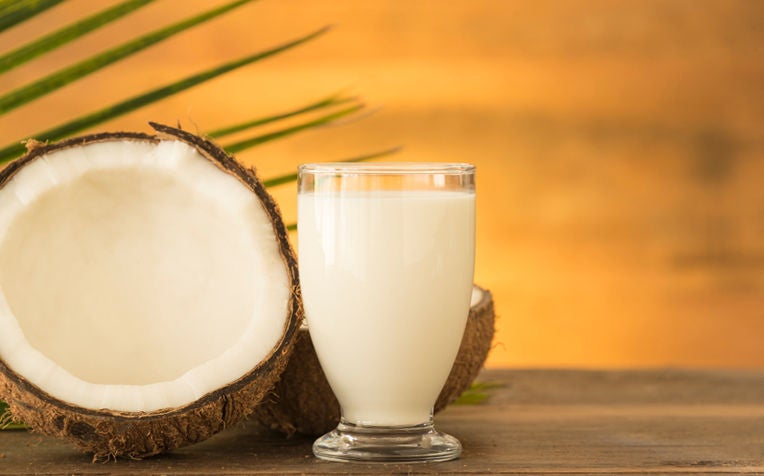
Can coconut oil, apple cider vinegar, acai berries, protein shakes and caffeine help you lose weight?
Many foods, including coconut oil and apple cider vinegar, are commonly thought to promote weight loss, but research studies have failed to find clear evidence to support these claims. Doctors from LIFE Centre at Singapore General Hospital (SGH), a member of the SingHealth group, presents the facts about these so-called “weight-loss foods”.
Coconut oil and coconut milk for weight loss
Apple cider vinegar (ACV) for weight loss
Fact: Apple cider vinegar may have several health benefits but weight loss is not one of them. Supporters of apple cider vinegar claim that taking it before a meal can curb appetite and burn fat. But this claim has not been proven by research. On the contrary, there is some evidence that frequent consumption of this highly acidic vinegar may cause throat irritation. It also may interact adversely with some dietary supplements and drugs such as insulin.
Acai berry for weight loss
Fact: The acai berry, native to South America, is packed with antioxidants that protect the body from damage caused by free radicals. These antioxidants – anthocyanins – are protective against cancer, heart disease, diabetes and neurological diseases. However, there is little evidence that acai berry, which is available in fresh, frozen, liquid, powder and capsule form, has any weight-loss benefits. The acai berry is also an expensive fruit. Berries such as blueberries, blackberries and raspberries can provide similar health benefits at a much lower cost.
Protein shakes for weight loss
Fact: If you consume a protein shake instead of a regular meal, you may be able to reduce your calorie intake and consequently lose weight. But you will miss out on not only the healthful nutrients you can get from a balanced meal but also the actual act of eating. Therefore, you may find yourself reaching for unhealthy snacks to munch on, an hour or two after drinking the shake.
Protein shakes should not be confused with nutritionally-balanced weight-loss shakes or bars, which have been found to be effective when taken as meal replacements within a structured weight-loss programme or under the guidance of a qualified health professional.
Caffeine for weight loss
Fact: Caffeine can suppress appetite temporarily which can help you reduce your calorie intake and lose weight. But this weight loss is likely to be temporary. Research has failed to prove a definite association between caffeine intake and sustained weight loss. Caffeine, found in beverages, chocolate, supplements and medications, may be safe when consumed in moderation, but in excess, it can be harmful to health, causing anxiety, nausea, and elevated blood pressure among other problems.
“Though we would all love for a miracle weight-loss food to exist, dieters need to eat healthily, control calorie intake, especially simple carbohydrates, and get enough physical exercise for sustained weight loss. The key is to burn more calories than you consume,” say doctors from LIFE Centre at Singapore General Hospital (SGH), a member of the SingHealth group.
Need help adopting a better lifestyle? The LIFE Centre at Singapore General Hospital (SGH) has a multidisciplinary team of experts who can provide you with guidance on weight management, exercise and diet.
Ref: O17
Contributed by

















 Get it on Google Play
Get it on Google Play